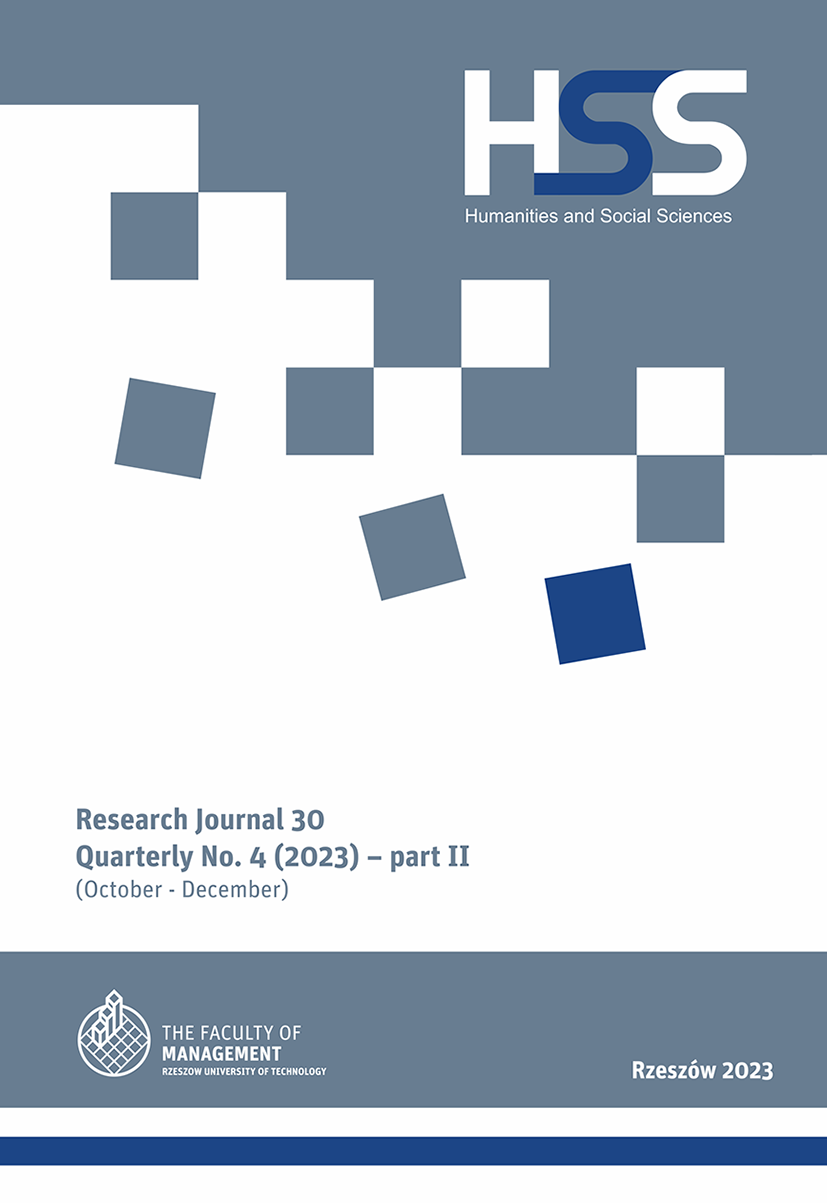Abstract
This article focuses on systematizing the artificial environments that humans produce in the course of conscious activity. With dynamic technological progress, these, in turn, evolve and become separate entities. Here, the authors attempt to “extend” the artificial human environment to include the space environment. Whether it should be treated as a separate entity from well-known environments such as the rural, urban, industrial, military, and cyberspace will be the subject of the authors’ interest and scientific inquiry. As human activity in space increases, including satellite launches, exploration missions, and potential economic ventures, the creation of a robust space security culture becomes a necessity. Anthropocene man (Sommer, Zakrzewski 2017b) expands on the planet Earth, which is why he looks so eagerly towards Space. The kind of safety culture that will be brought to the newly explored environment will be the subject of piecemeal research. The central problem is formulated as follows: Should humanity learn about and explore Space? Undoubtedly, the decision to explore space is complex and requires consideration of the potential benefits against the associated costs and ethical considerations.
References
Dolina lotnicza. PL [Access: 21.06.2023]. Access on the internet: https://www.dolinalotnicza.pl/dni-przemyslu-kosmicznego-w-rzeszowie-esa-bic-poland-catch-the-star-in-rzeszow/.
Encyklopedia PWN [Access: 09.03.2023]. Access on the internet: https://encyklopedia.pwn.pl/haslo/kopernik-mikolaj;3925575.html.
—— [Access: 07.04.2023]. Access on the internet: https://encyklopedia.pwn.pl/haslo/Wszechswiat;3998491.html.
Mapa [Access: 11.05.2023]. Access on the internet: https://pl.wikivoyage.org/wiki/Wojew%C3%B3dztwo_podkarpackie#.
Sommer, H., Zakrzewski, G. (2017a). Określenie poziomu świadomości korzystania z wybranych składowych sztucznego środowiska militarnego. „Modern Management Review”, Vol. XXII, 24 (4/2017). DOI: prz.edu.pl/pl/pdf/zim/314.
—— (2017b). Rozumienie słownictwa z ochrony i kształtowania środowiska człowieka w dokumentach państwowych. „Humanities and Social Sciences”, Vol. XXII, 24 (4/2017). DOI: prz.edu.pl/pl/pdf/einh/365.
Sommer, H., Sommer, H., Zakrzewski, G. (2018a). Gdynia jako kierunek migracji w opinii młodych mieszkańców Podkarpacia. „Zeszyty Gdyńskie”, part. 13.
—— (2018b). Ocena wybranych składowych wpływających na komfort przebywania klientów w wielkopowierzchniowych obiektach handlowych. „Humanities and Social Sciences”, Vol. XXIII, 25 (1/2018). DOI: prz.edu.pl/pl/publ/einh/378.
Sommer, H., Zakrzewski, G. (2023a). A culture of security versus digital exclusion as a form of social exclusion. “Humanities and Social Sciences”, Vol. 30, No. 3.
—— (2023b). Redefinicja oceny kultury bezpieczeństwa przez młodzież Podkarpacia [In:] Sommer, H., Sokołowski, W., Fabisiak, J., Zakrzewski, G., red., Czas na bezpieczeństwo – miscellanea – część pierwsza. Access on the internet: https://oficyna.prz.edu.pl/fcp/BGBUKOQtTKlQhbx08SlkTUgxQX2o8DAoHNiwFE1xVTH1aFVZpCFghUHcKVigEQR1BXQEsKTwdAQsKJBVYCRlYdwVWFjgBRA/18/public/otwarty-dostep/2023/00-czas-miscellan-cz-i-druk.pdf.
Zintegrowana Platforma Edukacyjna [Access: 5.05.2023]. Access on the internet: https://zpe.gov.pl/a/jak-urzadzony-jest-wszechswiat/D14tUpAYP.


